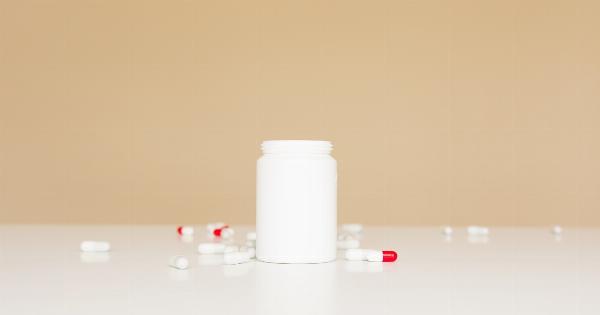Acne is a common skin condition that affects people of all ages. It occurs when hair follicles become clogged with oil and dead skin cells, resulting in pimples, blackheads, and whiteheads.
While acne can develop in various parts of the body, the chin area is a common site of breakouts, especially in women.
Causes of Chin Acne
Several factors contribute to chin acne, including genetic, hormonal, and environmental factors. Here are some common causes of chin acne:.
: Hormonal Changes
Hormonal changes play a significant role in the development of chin acne in women.
Hormonal fluctuations during puberty, menstruation, pregnancy, and menopause can cause an increase in oil production in the skin’s sebaceous glands, leading to acne.
: Cosmetics
Cosmetics and skincare products that contain heavy oils, fragrances, or chemical preservatives can clog pores and cause chin acne.
Always choose non-comedogenic and non-acnegenic products that do not contain any ingredients that can potentially cause acne.
: Stress
Stress can also trigger chin acne by increasing the production of hormones like cortisol, which, in turn, stimulates the sebaceous glands to produce more oil.
Additionally, stress can cause people to touch their faces more frequently, increasing the chances of bacteria spreading to the skin.
: Dietary Habits
Diets high in refined carbohydrates, sugar, and dairy products can lead to chin acne. Research indicates that certain foods, such as chocolates, sodas, and fried foods, can aggravate acne.
A balanced diet rich in vegetables, fruits, whole grains, and lean protein can help prevent chin acne.
Remedies for Chin Acne
Chin acne can be bothersome and can cause social and emotional distress. Fortunately, there are several remedies that can help mitigate chin acne. Here are some effective ways of getting rid of chin acne:.
: Topical Treatments
Topical treatments such as benzoyl peroxide, salicylic acid, and retinoids can help unclog pores, reduce inflammation, and reduce oil production. These treatments can be found in over-the-counter acne products and prescription medicines.
: Oral Medications
Certain oral medications can help treat chin acne, especially when it is severe or persistent. Antibiotics, hormone regulators, and isotretinoin are commonly prescribed oral medications for acne.
It is important to consult a dermatologist before taking any oral medication.
: Lifestyle Changes
Lifestyle changes can play a significant role in preventing chin acne or reducing its severity. Here are some lifestyle changes that can help:.
: Wash face regularly
Washing the face twice a day with a gentle cleanser can help remove excess oil, dirt and dead skin cells that clog pores.
: Hands off
Refraining from touching the face or picking at the pimples can reduce the chances of bacterial infections and scarring its also important to contact a professional if serious.
: Eat a balanced diet
A diet consisting of fruits, vegetables, lean protein, whole grains and limited refined carbohydrates, sugar, and dairy products can help prevent chin acne.
: Stress management
Practicing stress management techniques such as meditation, deep breathing, and yoga can help reduce stress levels and prevent chin acne.
Conclusion
Chin acne can be stubborn and challenging to manage, but with the appropriate remedies, it can be treated and prevented. Understanding the causes of chin acne and implementing simple lifestyle changes can help mitigate the condition effectively.























